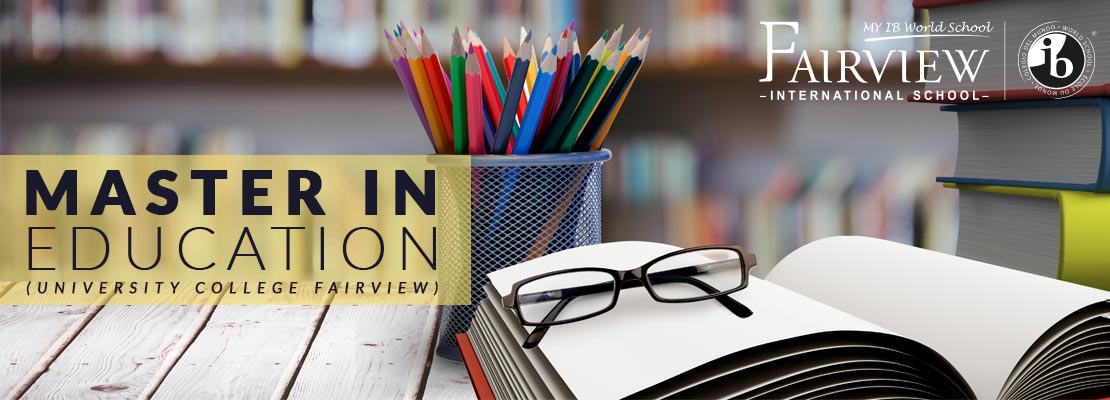COMPLETELY SPONSORED and PAID FOR BY the School.
The Master in Education (University College Fairview)
Our 3-year contract gives you the best of both worlds. If you are interested in an international experience, a professional teaching career and contributing to the advancements in the field of education, then read on...
- Be a full time teacher,
- Develop a reflective approach to your teaching,
- Research into your own teaching practice.
- GET PAID & GET a MASTERS
Any specific queries relating to this programme should be sent to hrd@fairview.edu.my
Welcome To Master In Education
Nestled contentedly within the tropical outskirts of the capital city is Fairview International School Kuala Lumpur, the first International Baccalaureate (IB) World School in Malaysia to offer a continuum of international education making available all three challenging IB programmes to pupils aged 3 to 19 (Primary Years, Middle Years and Diploma Programme).
Established in 1978, Fairview was founded by a group of like-minded parents seeking greater educational opportunities for their children. From humble beginnings and only a handful of students, Fairview International school is now a home away from home for over 2000 students in five schools across Malaysia, representing students from 55 different nations.
Four of these schools are IB World Schools; two of which only offers the Primary and Middle Years while the remaining two offer all 3 IB programmes. This includes the college level IB Diploma Programme renowned for its rigorous and diverse capacity. It commands preferentiality with its average grade score of only 30 out of 45 to be already equivalent to 2A* and 1B at GCE A Levels. (data obtained from UCAS website, as of July 2015; taken from http://www.ucas.com/how-it-all-works/explore-your-options/entry-requirements/tariff-tables).
Fairview’s commitment to professional development has long always included trainings and workshops to share best practices within education and the IB context. Furthermore, Fairview also sponsors various programmes for teachers and administrators with an elemental requirement of the Cambridge Diploma for Teaching and Learning (CIDTL).
However, not content with only providing quality education, it collaborated with University College Fairview(UCF) serving as a research institute. This encourages the boundaries for not just the IB programme but education itself to be pushed; through a tailored postgraduate programme with UCF with a Post Graduate In Education/Master in Education(International Baccalaureate). Through this, teachers are sponsored by Fairview to carry out data-driven research on teaching practice(s) of their own interest thereby advancing and contributing to the field of educational research. Furthermore, teachers seeking to be industry leaders in their field of choice progress towards a sponsored Doctor of Education (Phd) with University Malaya.
Additionally Fairview, as one of 23 universities in the world (as of 2015), is privileged to be recognised by the IB Organisation to offer a course as part of its professional development that lead to the IB Professional Educator Certificates. Furthermore, out of those 23 universities, only 14 universities (Fairview as one of them) are certified where its graduates of its Masters Programme are eligible for further certification from the IB Organisation; the IB Certificate in Teaching and Learning Research. This recognises teachers not just as IB practitioners but as an academic and researcher.
[/su_tab] [su_tab title="Course Description"]Course Description
You will draw on your experience as an International Baccalaureate (IB) teacher and improve your understanding of key concepts in education and those underlying the IB Programmes. You will develop your academic arguments and literacy in light of contemporary debates in international education whilst challenging and questioning your practice and experience. You will also acquire an understanding of the theory and practice of education research and adopt a reflective and critical approach needed to evaluate research literature. Then focusing on one of the 3 IB programmes (Primary Years Programme, Middle Years Programme or Diploma Programme), you will engage in data-driven research into your own practice and interest and issues related to one of the IB programmes to formulate solutions to issues or challenges in the area of international education.
At the end of the three years, you gain:
- Three years of teaching experience in an international school
- Three years of teaching experience in an IB World School
- The Post Graduate Diploma in Education (International Baccalaureate)
- Master in Education(International Baccalaureate); Both awarded by Unveristy College Fairview, Malaysia
- Opportunity to apply for the IB Professional Educator Certificate with the IB Organisation, subject to condition
For more information about:
- The IB programme (http://ibo.org/)
- The equivalency of IB's qualification to other post-16 qualifications using the UCAS Tariff tables for entry to UK universities Its average grade score of only 30 out of 45 is already equivalent to 2A* and 1B at GCE A Levels, as of July 2015 - Click Here!
This is an advanced course in the study of Teaching & learning based on research and theory from different disciplines. It focuses on increasing students' learning through the study of different learning systems and understanding each learner in the context of the learning process itself. The course enables the participants to become familiar with the factors to consider in planning learning lessons and programmes for their students. They will become curriculum experts in their fields of specialization and be able to design a developmentally appropriate programme particularly in addressing the various educational needs of their learners.
The course enables the participants to become more aware of the contributing factors in the effective teaching learning process towards learners’ success. Explores design and development of curricular, pedagogical, and assessment strategies responsive to needs and interests of students. Investigates factors that affect teaching and learning, and examines multiple ways of knowing that teachers bring to classrooms. Information taken from this course would enhance them to practice best teaching methodologies and strategies for the teaching and learning process.
This course enables students to know and understand the principles and processes of carrying out an evaluation of the educational process taking place in the classroom. They will also learn how to apply evaluative principles to the whole teaching cycle. In addition, students will embark on a self-evaluation of their own professional practice. By doing this, students will become reflective practitioners who constantly seek to improve the art and science of teaching.
The course explores the development of international education in the context of IB philosophy and curricula framework. It also provides an understanding of the essential elements and processes of implementing the IB programmes and how student learning is developed within these programme.
The course explores the design and development of curricular, pedagogical, and assessment strategies which are responsive to the needs and interests of students. It investigates factors that affect teaching and learning, and examines multiple ways of knowing that teachers bring to classrooms. It introduces nature of inquiry and assessment in IB World Schools. The course will include large group, small group, pair work, and individual strategies for teaching and learning.
This course explores the essential role of assessment in teaching IB learners. It addresses formative and summative assessment practices as an integral part of the IB curriculum as well as the use of assessment for differentiation and planning.
This course explores what is reflective practice and how it supports program implementation and enhances classroom practice. It looks at ways in which findings and experiences can be shared to improve the professional expertise of IB teachers, student learning and community participation. Current innovations and ideas in the area of international education and how these can be applied to enhance the IB program will also be considered.
This course will provide the foundational skills that are required to prepare for a successful research project designed to investigate an aspect of IB practice. These include conducting a literature search and writing a literature review; writing a research proposal; linking the literature review, the research proposal and the research report; and the requirements of, and techniques appropriate to, writing a research report.
This course reviews, extends and challenges students' understanding of, and skills in, systematic enquiry and explores with utilization of quantitative or qualitative research process to help educational practitioners plan and complete a research study related to IB learners, teachers or schools. Furthermore, the course examines the social, cultural and ethical issues of conducting research with students. The course is delivered via a mix of tutor-led sessions, workshop activity, small group discussion and individual tutorial work, with opportunities for online discussion and peer support. Through these means students will be introduced to key concepts, strategies and skills for personal, professional and organisational development through practitioner enquiry.
In this course students develop, undertake and review an enquiry-based project. The project must relate to the students area of specialisation (PYP/MYP/DP) programme or IB education in general but the focus and type of the project will vary according the students interests, students concerns and context. Typically, students undertake either an enquiry-based innovation or change project, or a research dissertation on a topic related to practice.
A key aspect of the course is that it offers the opportunity for students to undertake a largely autonomous, substantial piece of master's level work. Students are therefore expected to self-direct much of their learning. They will draw on the subject and enquiry knowledge base developed in earlier modules and work with a high degree of independence to locate further resources to support their study and enquiry.
What does the scholarship include?
- A round trip to Malaysia
- An en-suite twin room in the Halls of Residence or equivalent (on a twin sharing basis)
- Private hospitalisation insurance and medical cover
- Full tuition fee waiver for the UCF Masters programme
- A monthly allowance (subject to Malaysian Income Tax)
For More Information On :
- Fairview International School - http://www.fairview.edu.my/
- Fairview as an IB-recognised university for IBO's Professional Educator Certificate - Click Here!
- IB Professional Educator Certificates - Click Here!
- International Baccalaureate (IB) Organisation - http://ibo.org/
Accommodation
Accommodation at the Kuala Lumpur (KL) school campus is at its Halls of Residence and located above the campus. These are en-suite single person units. All rooms are air-conditioned, fully furnished and access to the Wi-Fi internet. Living, kitchen and laundry facilities are communal and are located on each level of the hostel.
Facilities
There are two pools on the Kuala Lumpur (KL) campus; the school pool (with paddling pool for small children) on the ground floor and the ‘Infinity Pool’ on level 9 which is specially built for occupants staying in the Presidential Suite on the rooftop. Pool table, communal lounge area, cable TV, Wi-Fi internet and in-school sports facilities are available.
[/su_tab] [/su_tabs][su_tabs] [su_tab title="Abstract 1"]
LANGUAGE ACQUISITION - How much do teachers really play in students acquiring language?
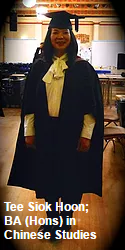
A case study examining the challenges and issues for IB MYP language B phase 1 students with recommendations to improve students’ performance
Learning involves acquisition of knowledge and skills. The question is there a better way to learn? Who should dominate the process of learning? Shall teacher determine the content and mode of delivery of the knowledge and skills? Or teacher shall drive the teaching to cater students’ learning needs and compliment to students’ learning?
This case study examined the challenges and key issues for IB Middle Years Programme MYP Language B Phase 1 students (beginner) with recommendations to improve students’ performance. It revealed the relationship between teaching strategies and learning needs from teachers and students’ perspectives and how it will impact the learning. This understanding is significant as it leads to the more successful planning and implementation of language programme. This research highlighted the purpose of learning second
language in IB education and suggested recommendations for student’s improvement by going beyond teaching Language B as a subject but in a broader real life context. This study suggests that any future research could build on ‘Concept-based curriculum and instruction in Mandarin classroom’ with the goal to develop student’s thinking to the level of deep, transferable understanding and applicable to their real life that bring them a better future.
LANGUAGE ACQUISITION - How much do teachers really play in students acquiring language?
Bilingual Cooperative Integrated Reading and Composition - effect on students‘ performance in Mandarin
This study, being an action research, has adopted the Bilingual Cooperative Integrated Reading and Composition (BCIRC) as its practical frame, to explore the issues of teaching Mandarin reading and writing as a second language. This study was conducted in an International Baccalaureate (IB) World School in Malaysia with 7 IB Diploma Year 12 students who took a reading and writing course over 6 weeks.
The purpose of this study was to find out the effects of BCIRC on students‘ performance in Mandarin reading and writing as second language. The perception, attitudes and behaviour of the students towards their Mandarin learning after the training intervention were explored. Quantitative data were analyzed based on the results of the pre-test and post-test of Mandarin reading and writing and the students‘ self-perceptions questionnaire. Moreover, qualitative data were obtained through individual interviews.
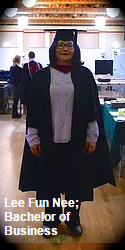
The findings revealed that the students had made significant progress in Mandarin and their motivation and behavior were also drawn to a more positive direction after the BCIRC program was instructed. The knowledge derived from this research has provided insights to support second language learning and teaching, as well as curriculum planning in IB World Schools.
NON-ACADEMIC SKILLS - Should and can non-academic skills be measured? How?

Educational expeditions: Are they providing opportunities to develop the IB Learner Profile and ATL skills? An Enquiry Based Project
This study examines the effectiveness of an educational expedition, in providing an opportunity for International Baccalaureate (IB) students to develop their IB Learner Profile attributes. It also seeks to examine if an existing life-effectiveness questionnaire (LEQ) is suitable to measure the students’ perceived gains and how this relates to the IB’s Learner Profile as well as the IB’s Approaches to Learning (ATL) within its Middle Years Programme (MYP). This is important to my school and the IB community at large as the fundamental aims of the IB are delivered through the successful development of the Learner Profile in its students’.
Twenty students from a cohort of 204 participating a 5-day residential, school educational expedition were selected. The Life-effectiveness questionnaire instrument LEQ-H developed by Neill and his colleagues (Neill, 2008; Neill, Marsh, & Richards, 2003) was selected. This was administered pre and post expedition. In addition to this semi-structured interviews with teachers involved were carried out.
The results indicate that the LEQ-H was able to identify significant positive gains in certain life-effectiveness, particularly self-confidence and these indicate the possibility of similar positive development in students’ IB Learner Profile attributes. The outcome of the results suggests that the next step forward is to develop a specific LEQ for IB schools’ to measure the development of the Learner profile and certain ATL Skills over time.
NON-ACADEMIC SKILLS - Should and can non-academic skills be measured? How?
Challenges students encounter in developing their Affective Skills to become Self-Regulated Learners. An Enquiry Based Project
The purpose of this research is to explore how the Affective Skills of Mindfulness, Perseverance, Emotional Management, Self-Motivation and Resilience can be taught to students, using specific models, to help students develop as Self-Regulated Learners in the MYP, and from the feedback received from students, understand what challenges they encountered when applying the models, to practice and develop the skill. This project aims to provide clarity regarding the definition of a Self-Regulated Learner, and provide recommendations on how MYP schools can incorporate a Self-Regulated Learning Framework into the planning and design of the curriculum in the MYP, and for MYP schools to have an awareness and understanding of the challenges students will encounter in order for these challenges to be considered when planning the curriculum to promote a system which is student centered. The challenges, which students encountered, can be divided between challenges within their control, and challenges beyond their control. Using models will enable
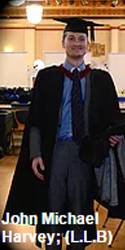
feedback to be given to students in order to overcome the challenges. The challenges beyond their control can be controlled by the school through integrating and embedding a philosophy of creating Self- Regulated Learners during the planning and organisation of an MYP Curriculum.
Professional Development - How effective are really the various forms of professional development?
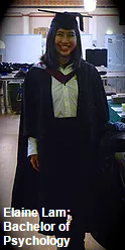
Perception of Novice Teachers on professional support in IB World Schools
With the rising entry of fresh graduates and novice teachers into the education industry, ensuring that the new teachers are well supported is crucial to promote the school’s stability and students’ wellbeing and to improve the quality of education the school provides. However, to what extend that the support measures provided are effective for these novice teachers who are more vulnerable and susceptible to burn out and attrition? The present study aimed to shed some light into this area looking into the context of IB World Schools in the Asian region.
Through the insights gathered from the relevant literature reviews and data collected through focus group and individual interviews, findings were interpreted and explained. It was concluded that the induction programme, mentoring system and school’s environment were found to be successful indicators to support the development and smooth transition of novice teachers into the education field. Alternatively, it was found that basic information and procedures need to be further made clear to this group. Further recommendations highlighted the need to continuously looking from the perspective of the novice teachers as a better predictor of their changing needs, as perspective drives interpretations that leads to action.
Professional Development - How effective are really the various forms of professional development?
Teachers' perceptions of the effectiveness of CPD in becoming an IB teacher
The purpose of this study was to gather data regarding teachers’ perception about continuous professional development (CPD) and identify how CPD aids in enhancing their teaching and learning in the Middle Years Programme (MYP) in my school which is an IB world school. This study also aimed to identify which aspects of the CPD proved most effective and their perception regarding the implementation and monitoring of the CPD’s conducted in this school. Data were collected using questionnaires and interview methods and this involved the MYP teachers, coordinators and assistant coordinators.
The project recommends that the school should look at teacher professional development as teachers’ development of knowledge and skills. Workshops on differentiation, Thinking skills, Learner profiles, Concept based learning, collaborative planning, classroom management, Approaches to learning and types of assessment have made them better teachers in the MYP and thus these workshops needs reinforcement and should be conducted more than once. To make the CPD’s more effective the school should adopt a differentiated approach instead of conducting a similar workshop for all teachers. When it comes to the implementation, the objectives must be clear and the monitoring needs to be more effective and the follow up must be tighter.
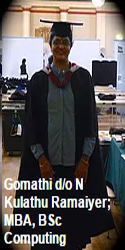
Professional Development - How effective are really the various forms of professional development?
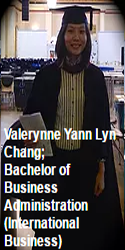
Implementation and perceived effectiveness of Professional Learning Community (PLC) in an International Baccalaureate (IB) World School
The purpose of this study was to examine the level of implementation and teachers’ perceived effectiveness of PLCs in an International Baccalaureate (IB) World School. This study also described teachers’ recommendations to enrich their PLC experience and discussed identified hindrances to the implementation of PLCs. The objectives of the study were achieved using a four-page, three-part researcher developed, mixed-method survey design to record both quantitative data (Likert scale) and qualitative data (open-ended questions), to capture the essence of each participant’s belief on the level of implementation and perceived effectiveness of PLCs, based on the characteristics listed by Hord (1997, 2003). Inputs from approximately 60% of the population were represented in this study. The overall results indicated that the school environments were perceived by teachers to reflect the characteristics of a PLC, most evidently demonstrated in collective learning and application; least evidently shown in terms of supportive conditions. Time constraint was viewed as the greatest challenge to implementing PLCs effectively. Other suggestions to enhance the PLC experience included collapsing teaching periods to allow a more comfortable time slots for PLCs to take place and taking actions to align vision and reinforce purpose of PLC activities for better participation and more fruitful discussions.
Technology - How effective How truly effective is technology and its use?
- A teacher’s role in Mathematics learning using iPads in PYP 6 classrooms
- Effective usage of Tablet PC in the furthering of the Approaches to Learning
- Poisoned Apple? Teachers perceptions of using the iPad as a teaching tool
- iPad vs iPhone/smartphone: An informed comparison in the classroom
Student Engagement - How do we know if we have really engaged our learners?
- Student’s engagement in IB PYP Visual Arts classroom through the Digital Literacy Curriculum
- Factors involved in engaging students in the visual arts classroom?
- Students’ perception on Problem-based Learning (PBL) in learning MYP Mathematics
- Fostering information literacy through learning commons – an action research for a long range library development plan
- In what ways can the sportfolio promote learning and engagement in Physical Education?
- Productive discussions in promoting conceptual thinking in Grade 5 Mathematics classroom
- Students perception of Constructivist Learning in MYP Visual Arts classroom
- Multiple intelligences and student learning in dance education in an IB World School
[su_tabs]
[su_tab title="FAQ"]
A : Teachers are currently being assigned to either one of our two campuses in the city of Kuala Lumpur.
A : The unique element of this Masters programme is the opportunity for practical experience whilst acquiring the theoretical knowledge. Because of this, the postgraduate course is extended over three years to offer candidates the immersion and reflection opportunities in an IB educational setting to conduct an on-site research project. See Course Description for more details.
A : A typical day starts at 7.20am to 3.30pm Monday to Friday. However, some of the classes related to the Masters programme or other professional development modules may take place on weekends.
A : While it may be advantageous to have previous teaching experience it is not necessary. Fairview provides assistance to all individuals with little or no teaching experience. This includes orientation to the fundamentals of teaching and learning, and, IB pedagogies. You will also be supported through Fairview’s network of schools through an online platform allowing for cross-communication throughout all campuses and continuous collaborative planning. This offers you the opportunity to learn from and share with a diverse range of academic staff across levels and departments.
A : As this Masters is a praxis, teaching your own class will be alongside the acquisition of theory to the fundamentals of teaching and learning, and, IB pedagogies. All teachers will be acquainted with the IB curriculum framework and supported through their respective IB programme coordinator and colleagues. You will also be supported through Fairview’s network of schools through an online platform allowing for cross-communication throughout all campuses and continuous collaborative planning. This offers you the opportunity to learn from and share with a diverse range of academic staff across levels and departments. It is possible to be co-teaching to facilitate some teachers the extra opportunities to learn directly from an experienced IB teacher and/or be a provision of support for those concerned with teaching their own class independently.
A : Co-curricular activities (CCA) offers teachers opportunities to develop and interact with students outside the classroom through a more social context of societies and sports. You may be required to supervise or assist a CCA, that may be an interest of yours and/or if you have relevant experience. Other duties (though not exhaustive) include class, break-time and dismissal supervision. The school observes and celebrates a variety of events of which all staff, academic and administrative, collaborate towards.
A : Fairview follows the English National Curriculum.
A : Semester dates and the dates of school holidays can be found from Fairview’s website.
Leave can only be taken during school holidays and not during scheduled professional development workshops/ classes. Additionally, Fairview may require you to attend some external workshops deemed to be useful to your professional practice that may fall during school holidays. Also, as part of the staff of Fairview International School, your participation in school events and celebrations is required which may again fall during school holidays.
A : Yes, once students begin their Masters modules teachers will have access to the electronic library resource database.
A : Sports facilities: basketball courts, badminton courts, sports hall, futsal area, playing field and swimming pool(s).
Halls of Residence (accommodation): Infinity pool on the roof of the building overlooking the lush tropical outskirts of Kuala Lumpur, pool tables, Wi-Fi and a communal lounge areas with cable TV.
A : Your first salary will be placed into your Malaysian bank account after teaching for one complete month. The school will help you set up your Malaysian bank account upon arrival. It is advised to come with some money for food and expenses to cover the first month.
Malaysia offers many fantastic adventures, sights to see and places to explore.
This centrally located country within South-East Asia is known for its limestone cave explorations, jungle trekking and unspoilt waterfalls. Beyond luxurious getaways, Malaysia is also known as a shopping haven and a foodie’s paradise.
Malaysia has a mission to be recognised as a "developed" country by 2020 which makes it an amazing time to live here. Having a very modern outlook with immense international-mindedness Malaysia can easily become your home away from home.
Here you can find some sites to entice the adventurer in you and explore the wonderful world of Malaysia.
Tourist Information
- Official Website of Tourism Malaysia: http://www.tourism.gov.my/en/uk
- The Lonely Planet: http://www.lonelyplanet.com/malaysia
- Trip Advisor: http://www.tripadvisor.com.my/
Health Advice
- World Health Organisation (WHO): http://www.who.int/countries/mys/en/
- The Center for Disease Control (CDC): http://wwwnc.cdc.gov/travel/destinations/malaysia.htm
Expat Information
- Expat Focus: http://www.expatfocus.com/expatriate-malaysia
- Transitions Abroad: http://www.transitionsabroad.com/listings/living/resources/expatriatewebsites.shtml
- The The Expat Group: http://www.theexpatgroup.com/index.php
Entertainment
- Time-Out KL: http://www.timeoutkl.com/
To apply, please click on the link below to fill up the form or email to hrd@fairview.edu.my
If you have specific queries pertaining to the application process or the course please email:
- A good Bachelors degree in any discipline
- A minimum IELTS score of 6.5 (if English is not your first language)
The documents below are necessary to apply for the candidate's work visa
These are only to be submitted if your application is successful):
- If currently working or visiting Malaysia, please provide the latest entry visa to Malaysia
- Copy of passport (all pages) (passport must be valid for another 36 months and have at least 10 empty pages)
- Copy of Birth Certificate
- Academic certificates to be certified by the relevant embassy (this will be further clarified by the HR)
- Academic certificates to be certified by the relevant embassy (this will be further clarified by the HR)
- Police clearance, especially involving working with vulnerable groups such as children
- Standard blood test; ie. Full Blood Count (FBC)
- Letter of fitness from GP, to attest mental and physical fitness to work with children
- Tax Identification Number (for US citizens only)
(Please note that any documents that are not in English language, must be translated into the English Language and Notarial Certified)
[/su_tab] [su_tab title="Contact"]Corporate Office
Fairview International School, Kuala Lumpur(IB World School) 4178 Jalan 1/27D, Section 6, Wangsa Maju, 53300, Kuala Lumpur
Tel : +603 4142 0888 (Malaysia office) | Fax : +603-4149 0222
E-mail : enquiries@fairview.edu.my
Campus Address
2A, Jalan TP2, Sime UEP Industrial Park Subang Jaya, 47600 Subang Jaya, Selangor.
Tel : +603-8023 7777 (Malaysia office) | Fax : +603-8023 7888
E-mail : enquiries@ucf.edu.my

